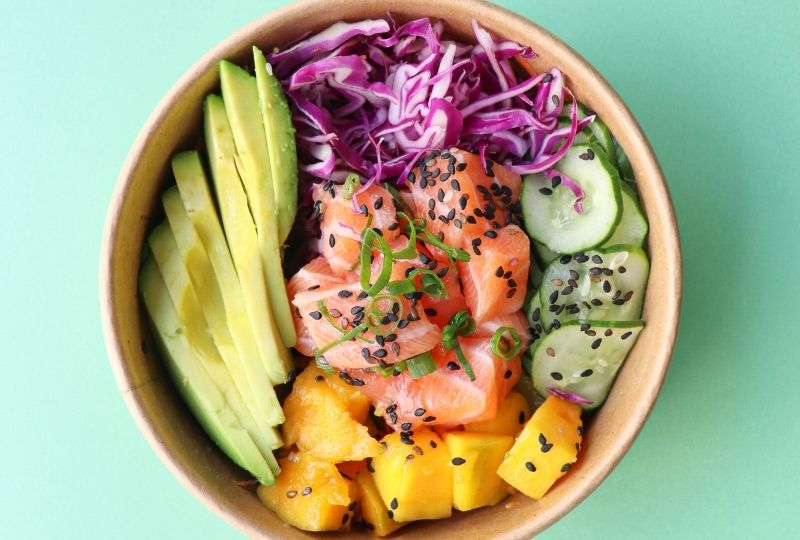A healthy diet is the foundation of long-term well-being, energy, and disease prevention. Instead of focusing on strict diets or restrictions, the key is to incorporate nutrient-rich foods that support overall health.
In this guide, you’ll discover 7 essential foods that provide the vitamins, minerals, and antioxidants your body needs to function at its best.
1. Leafy Green Vegetables 🌿
Leafy greens are packed with fiber, vitamins, and antioxidants that help fight inflammation and improve digestion.
✅ Nutrient Highlights:
- Vitamin K → Supports bone health and heart function.
- Folate → Essential for brain function and red blood cell production.
- Antioxidants → Protect cells from damage and reduce the risk of chronic diseases.
✅ Best Choices:
- Spinach 🥬
- Kale
- Swiss chard
- Arugula
✅ How to Add to Your Diet:
- Blend into smoothies.
- Add to salads or omelets.
- Sauté with garlic and olive oil.
2. Berries 🍓
Berries are rich in antioxidants, fiber, and vitamins, making them one of the best foods for brain health and immunity.
✅ Nutrient Highlights:
- Vitamin C → Boosts immunity and collagen production.
- Fiber → Supports digestion and keeps you full longer.
- Flavonoids → Improve cognitive function and heart health.
✅ Best Choices:
- Blueberries
- Strawberries
- Raspberries
- Blackberries
✅ How to Add to Your Diet:
- Top your yogurt or oatmeal with fresh berries.
- Blend into smoothies.
- Eat as a snack.
3. Fatty Fish 🐟
Fatty fish are loaded with omega-3 fatty acids, which are essential for brain health, heart function, and reducing inflammation.
✅ Nutrient Highlights:
- Omega-3s → Support brain function and reduce the risk of heart disease.
- Protein → Helps build and repair muscles.
- Vitamin D → Strengthens bones and immune function.
✅ Best Choices:
- Salmon
- Sardines
- Mackerel
- Trout
✅ How to Add to Your Diet:
- Grill or bake fish for dinner.
- Add canned sardines to salads or toast.
- Make a salmon avocado wrap.
4. Nuts and Seeds 🥜
Nuts and seeds provide healthy fats, protein, and essential nutrients for heart health and energy.
✅ Nutrient Highlights:
- Magnesium → Supports muscle function and reduces stress.
- Healthy fats → Improve brain function and cholesterol levels.
- Protein and fiber → Keep you full and support digestion.
✅ Best Choices:
- Almonds
- Walnuts
- Chia seeds
- Flaxseeds
✅ How to Add to Your Diet:
- Sprinkle chia or flaxseeds in smoothies or yogurt.
- Eat a handful of nuts as a snack.
- Use nut butter on whole-grain toast.
5. Whole Grains 🍞
Whole grains are rich in fiber and essential nutrients that keep energy levels stable and support digestion.
✅ Nutrient Highlights:
- Fiber → Promotes gut health and prevents overeating.
- B Vitamins → Support energy metabolism and brain health.
- Complex carbohydrates → Provide long-lasting energy.
✅ Best Choices:
- Quinoa
- Brown rice
- Oats
- Whole wheat bread
✅ How to Add to Your Diet:
- Eat oatmeal for breakfast.
- Use brown rice instead of white rice.
- Make a quinoa salad with vegetables.
6. Legumes (Beans and Lentils) 🌱
Legumes are an affordable, protein-packed superfood that support heart health and gut function.
✅ Nutrient Highlights:
- Plant-based protein → Supports muscle and tissue repair.
- Iron → Helps transport oxygen in the blood.
- Fiber → Aids digestion and promotes satiety.
✅ Best Choices:
- Chickpeas
- Lentils
- Black beans
- Kidney beans
✅ How to Add to Your Diet:
- Make a lentil soup or stew.
- Add chickpeas to salads or hummus.
- Use black beans in burritos or grain bowls.
7. Fermented Foods (Probiotics) 🥒
Fermented foods contain probiotics, which support a healthy gut microbiome—crucial for digestion, immunity, and mental health.
✅ Nutrient Highlights:
- Probiotics → Support gut health and digestion.
- Enzymes → Aid in nutrient absorption.
- B Vitamins → Boost energy and brain function.
✅ Best Choices:
- Yogurt (unsweetened)
- Kefir
- Sauerkraut
- Kimchi
✅ How to Add to Your Diet:
- Eat yogurt or kefir for breakfast.
- Add kimchi or sauerkraut to meals.
- Drink a small glass of kombucha.
Final Thoughts
A healthier life starts with small, intentional food choices. Instead of focusing on restriction, focus on adding more nutrient-dense foods to your diet.
Start by incorporating one or two of these foods into your meals each day, and over time, your health and energy levels will improve naturally!
